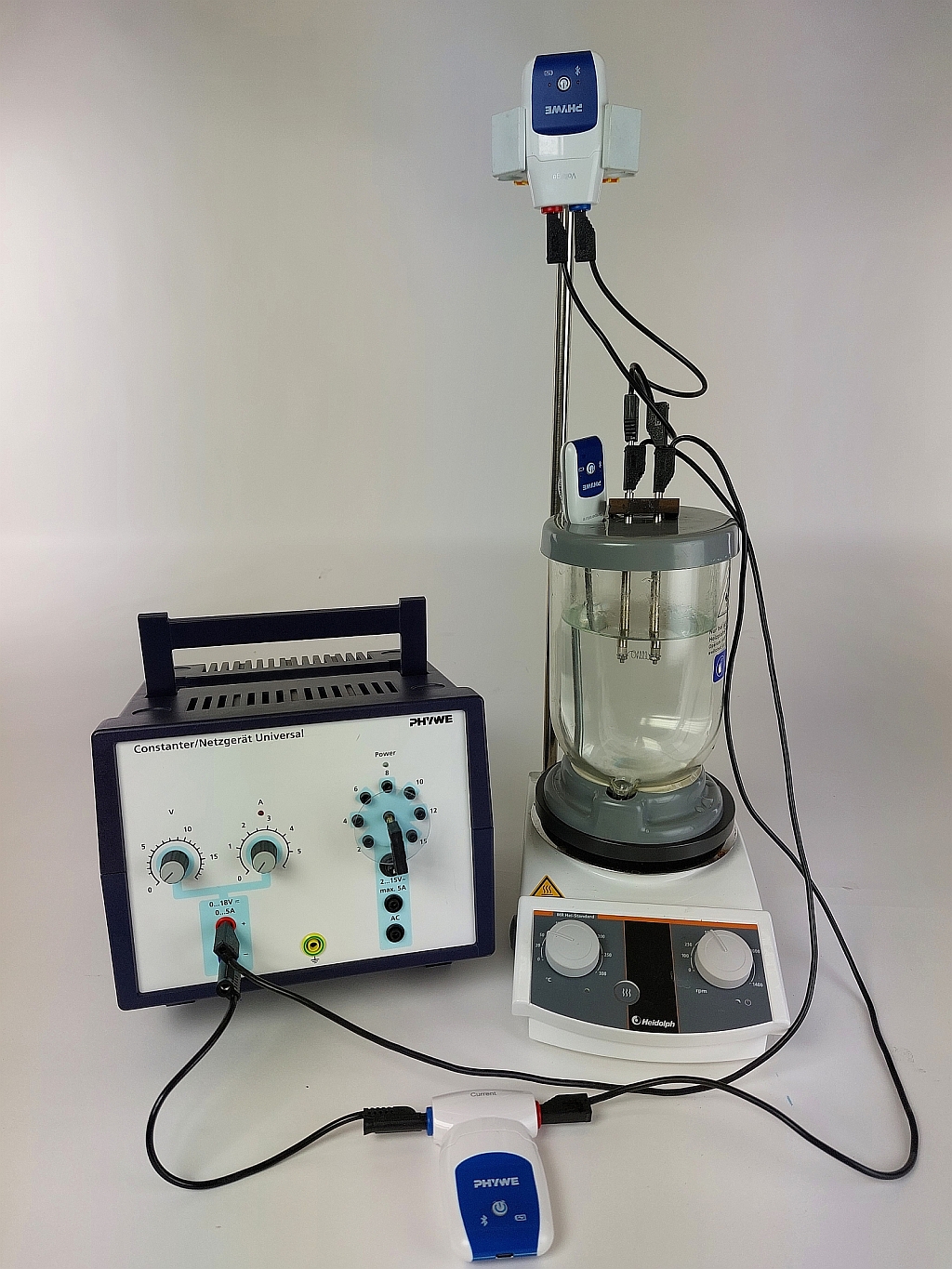Principle
When a strong acid is neutralised with a strong base in dilute solution, the same amount of heat is always released. If the reaction takes place under isobaric conditions, this heat is known as the enthalpy of neutralisation. The chemical reaction which generates this heat is the reaction of protons and hydroxyl ions to form undissociated water. It therefore correlates to the enthalpy of formation of water from these ions.
Benefits
- Simplified implementation: all pre-settings already prepared
- Calorimeters with particularly high capacitance
- Part of a system solution - Easily expandable for further experiments
Tasks
- Measure the temperature change during the neutralisation of a dilute potassium hydroxide solution with dilute hydrochloric acid.
- Calculate the enthalpy of neutralisation.
Learning objectives
- Enthalpy of neutralisation
- Calorimetry
- Heat capacity
Necessary accessories
- Precision balance 6200g/0.01g
